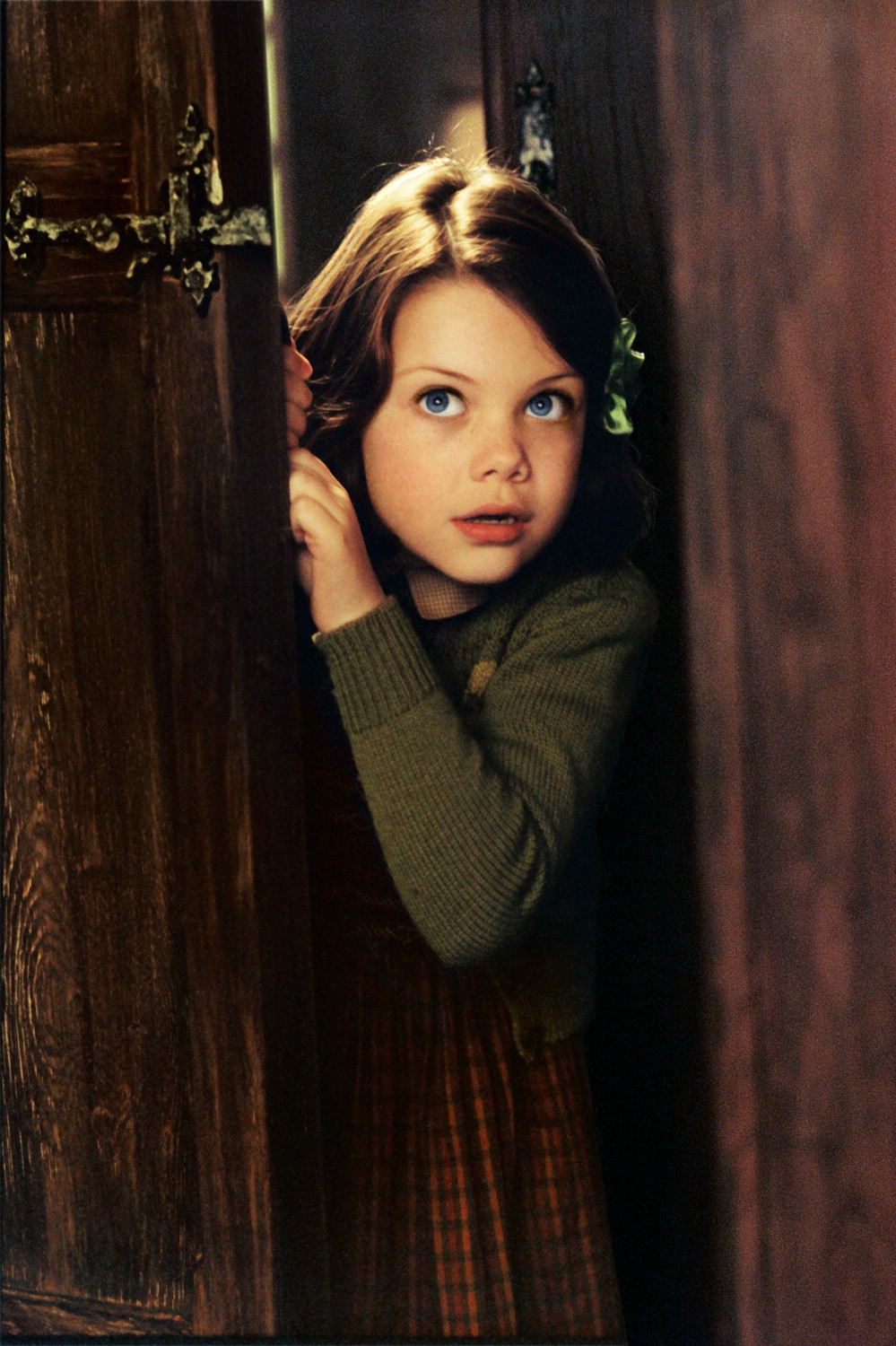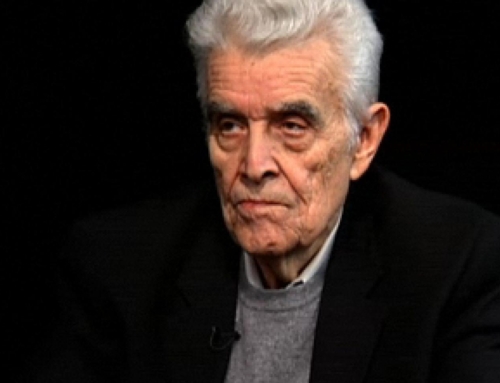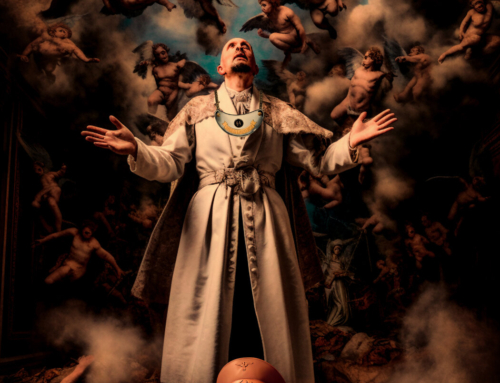In Prince Caspian Peter, Edmund, Susan and Lucy are drawn from a country railway station in England, to a Narnia that is thousands of years older than when they were there last. (Narnian time, they discover, runs differently than our time) They soon learn of Prince Caspian’s plight and set out across an unfamiliar Narnian landscape to help him. The battle for Narnia eventually transpires, but before it does the children have to discern the way forward.
Lucy, the youngest child, is also the most spiritual. What she sees is the important heart of the story. It is no co-incidence that St Lucy, who was martyred by being blinded, and is the patron saint of the blind, is the Pevensie girl’s namesake. The Narnian St Lucy is not blind, but she does help those who are. Lucy is the first one to see the great Lion Aslan. At first she only sees him out of the corner of her eye. Then she sees him as a shadow or a fleeting image. At last, he calls to her and she sees him face to face and embraces him.
Lucy sees Aslan when she and her siblings are lost in the forest, and need to find the way to help Prince Caspian. Aslan summons them through Lucy, to follow a high trail up and over a ridge. When Lucy claims to see Aslan the other children doubt, and waste time and effort going the wrong way, only to turn back to the way Aslan first intended. Then comes the crunch scene: Aslan summons Lucy again with great urgency and tells her that she must wake up the others and lead them on, even if they cannot see him, and even if they doubt her.
Lucy obeys, despite the fact that they do not believe in her visions, and ridicule her child like trust and belief. Eventually the other four follow her, and come to the point where they too can see and love Aslan. Through her obedience and faith, Lucy leads the others home.
As such Lucy shows us that we all must “walk by faith and not by sight.” The resurrected Lord says to St Thomas, “You have seen and believe. Blessed are those who have not seen, yet believe.” Going forward in faith when times are good is not so difficult. Going forward in faith when we cannot see the way, when the path leads uphill, when we set out in the middle of the night: that is when it is most difficult to follow.
The older children are unable to see Aslan because already they are starting to grow up, and in Lewis’ Narnia tales the grown ups are always the ones who are blind. The two older children–Susan and Peter, are informed that they will not be returning to Narnia because they will soon be so grown up that they will not only be unable to see Aslan, but they will be unable to get into Narnia at all. The kingdom of heaven, like Narnia, is only open to those who become as little children.
C.S.Lewis, as an Anglican, may not have been very familiar with St Thérèse of Lisieux, but his work reflects her own ‘little way of spiritual childhood’ which is drawn directly from the gospel where Jesus says we must all become as little children to enter the kingdom. St Thérèse said, ‘To remain little means to recognize one’s nothingness to expect everything from God, not to worry too much about one’s faults in a word, not to wish to lay up treasure, and to keep an untroubled heart.” In Prince Caspian Lewis gives us a Lisieuxian in Lucy. What Lucy saw was that to follow Christ one must remain little and trusting.
In St Benedict and St Thérèse-The Little Rule and the Little Way I bring out the point that on the darkest part of her own journey Thérèse said, “It is as if I am in a subterranean passage. I don’t see that we are advancing towards the summit of the mountain since our journey is being made underground, but it seems to me that we are approaching it without knowing how.” This ability to ‘walk by faith and not by sight.’ lies at the heart of the Christian pilgrimage, and the blind Lucy, feeling her way to martyrdom is our patron in that pilgrimage.
I’m reminded of my friend Sister Mary Lucy–a Poor Clare nun who had suffered enormously in many ways–not least of which was the loss of her eyesight. I asked her once if she was ever angry with God because of her blindness. She gave her big grin and said, “Oh no Father! I have never been angry with God because I have seen so much more without my physical sight than if I had retained it!” Its a reminder that the great stories echo with the heroes who are blind seers–the old blind man or woman who sees more clearly than most of us do.







Leave A Comment
You must be logged in to post a comment.